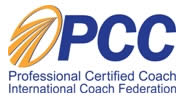Constructive Criticism: A Building Block of Performance Improvement
Criticism, otherwise known as Constructive Feedback, is an essential component of managing and leading others. While most people dread the thought of giving criticism, without it, the staff will not always meet expectations, and they will not learn and grow. To overcome the stigma attached to giving criticism, a good culture to adopt is one where “learning is the name we give to our mistakes.”
It is important not to mix praise and criticism in the same conversation. We have all experienced the “lukewarm praise” beginning a meeting, only to have it followed by the real purpose – a criticism. Everything prior to the proverbial “but” is forgotten instantly. As a result, both the praise and criticism are diminished.
The first challenge most people have when being criticized is to become defensive. Consequently, they learn very little. So what tactics are best to turn destructive criticism into constructive feedback?
- Always criticize the action, not the person. If the person is criticized, it is nearly always taken as a personal attack.
- Give specifics and avoid the sweeping generalizations. Make suggestions on what the person can do to improve. The solutions are the building blocks of constructive feedback.
- Invite the other person to join you in identifying ideas to improve. Don’t make it a monologue where you make all the suggestions or tell the person exactly how to do the job.
- Be assertive in your criticism in an honest, straightforward manner. Avoid half-truths, gossip, and bringing in others’ names. Be respectful, and uphold the person’s dignity.
- Always criticize in a private place – never in front of others. Public criticism will humiliate the person, and bystanders will often take sides. Chances are, it won’t be your side!
When you turn giving criticism into learning experiences for you and the individual to whom you are giving feedback, it demonstrates great leadership. You will gain respect and find that people actually listen and change.
About the author:
Diane Allen, PCC is a professional certified coach, leadership development consultant and founder of the Strategic Leadership Academy (www.strategicleadershipacademy.com). She has spent the past twelve years helping senior leaders and middle managers build success by building their personal and organizational leadership skills. For a complimentary white paper on how to ask five powerful leadership coaching questions, please send an email to: info@strategicleadershipacademy.com and put “powerful coaching questions” in the subject line.





Leave a Reply